This post may contain affiliate links. Please see my disclosure policy for details.
My Tinsel Christmas Tree Obsession
Contents
- My Tinsel Christmas Tree Obsession
- Why Everyone’s Going Crazy for Tinsel Trees Right Now
- The Wild History Behind These Sparkly Showstoppers
- Choosing Your Perfect Tinsel Tree (Size Really Does Matter)
- Colors That’ll Make Your Neighbors Jealous
- Decorating Secrets That Actually Work
- Safety First (Because Nobody Wants a Holiday Disaster)
My tinsel Christmas tree obsession started three years ago when I stumbled across a vintage aluminum beauty at an estate sale.
The seller probably thought I was nuts when I practically squealed over what looked like a metallic sculpture masquerading as holiday décor.
But here’s the thing – that shimmering, space-age masterpiece completely transformed how I think about Christmas decorating.
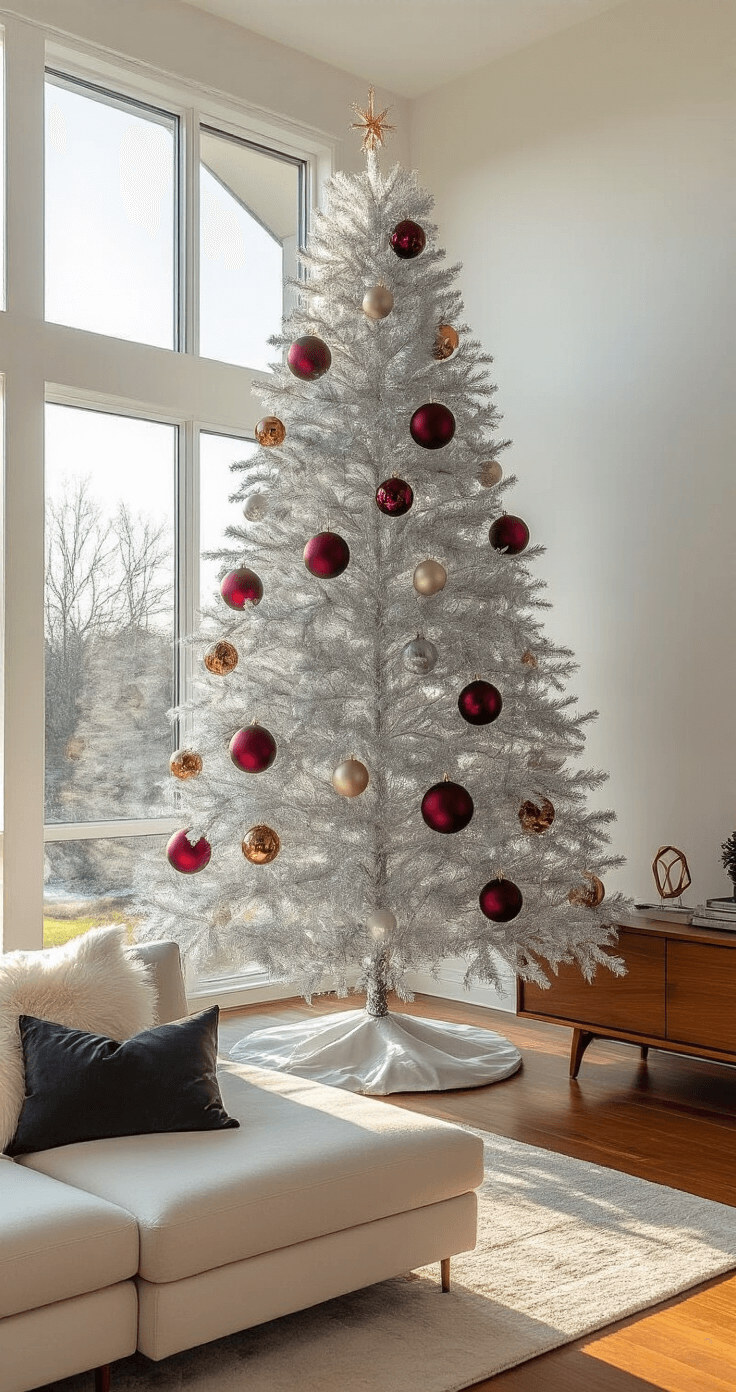
Why Everyone’s Going Crazy for Tinsel Trees Right Now
You know that feeling when you walk into someone’s home and their Christmas tree stops you dead in your tracks?
That’s exactly what happens with tinsel trees.
These aren’t your grandmother’s evergreens (well, actually they might be – more on that later).
Here’s what makes people fall head over heels:
- Pure drama – Nothing catches light like metallic branches
- Zero maintenance – No watering, no needle cleanup, no dying branches
- Storage heaven – Most fold down completely flat
- Customization central – Blank canvas for your wildest decorating dreams
- Photo magic – Every angle looks Instagram-perfect
The revival isn’t just about nostalgia either.
Modern tinsel trees solve real problems that traditional trees create.
The Wild History Behind These Sparkly Showstoppers
Picture this: It’s 1958, and the Aluminum Specialty Company drops what might be the most controversial Christmas product ever.
Aluminum Christmas trees.
Suddenly, American living rooms looked like sets from The Jetsons.
These weren’t just trees – they were statements about modernity, convenience, and breaking away from tradition.
The timing was perfect.
Post-war America was obsessed with anything futuristic, space-age, and convenient.
But here’s what most people don’t know: tinsel itself has been around since the 1600s in Europe.
Back then, it was made from actual silver and cost a fortune.
The original tinsel was:
- Hand-hammered silver strips
- Incredibly fragile
- Only for wealthy families
- Painstakingly applied strand by strand
Thank goodness we’ve come a long way.

Choosing Your Perfect Tinsel Tree (Size Really Does Matter)
I learned this the hard way after buying a 6-foot aluminum Christmas tree for my tiny apartment.
It dominated the space like a metallic monster.
Here’s my size guide:
Tabletop Trees (18-24 inches):
- Perfect for apartments or small spaces
- Great as accent pieces
- Ideal for mantels or side tables
- Budget-friendly starting point
Medium Trees (3-4 feet):
- Sweet spot for most homes
- Substantial presence without overwhelming
- Easy to decorate and store
- Perfect for first-time tinsel tree buyers
Full-Size Trees (5-6 feet):
- Statement pieces for large rooms
- Maximum dramatic impact
- Require serious storage space
- Investment pieces that last decades
The golden rule? Your tree should enhance your space, not eat it alive.
Colors That’ll Make Your Neighbors Jealous
Silver might be the classic, but we’re living in the golden age of tinsel tree variety.
My favorite color options:
Classic Silver:
- Timeless and elegant
- Reflects every color beautifully
- Works with any ornament scheme
- Never goes out of style
Rose Gold:
- Instagram darling
- Warm and romantic
- Perfect with blush and cream ornaments
- Modern twist on tradition
White Iridescent:
- Dreamy and ethereal
- Creates winter wonderland vibes
- Stunning with blue or purple lights
- Less bold than metallic options
Hot Pink:
- Bold and playful
- Perfect conversation starter
- Amazing with vintage ornaments
- Not for the faint of heart
I currently own three tinsel trees in different colors because apparently I have no self-control.
Decorating Secrets That Actually Work
Here’s where most people mess up their tinsel tree game.
They treat it like a regular evergreen.
Big mistake.
Tinsel trees follow completely different rules.
Weight Distribution Magic:
- Keep heavy ornaments close to the trunk
- Maximum 10 ounces per branch tip
- Test branch strength before committing
- Use lighter materials for outer branches
Lighting Strategy:
Never, ever string lights directly on the branches.
The metallic material can conduct electricity, and honestly, it looks amateur.
Instead, try these professional tricks:
- Use LED color-changing lights positioned around the tree
- Install a color wheel that rotates different hues onto the branches
- Place battery-operated fairy lights inside ornaments
- Use spotlights to create dramatic shadows
Ornament Selection:
This is where tinsel trees either shine or fall flat.
Go bold or go home:
- Oversized vintage baubles in solid colors
- Geometric shapes that complement the modern aesthetic
- Matte finishes that contrast with the metallic shine
- Statement pieces rather than tiny filler ornaments
Skip the traditional red and green unless you’re going full vintage camp.
Safety First (Because Nobody Wants a Holiday Disaster)
Modern tinsel trees are generally safe, but vintage ones need extra attention.
Red flags to watch for:
- Lead content in older trees (pre-1970s)
- Sharp edges on poorly made branches
- Unstable bases that tip easily
- Frayed or damaged metallic coating
Smart safety practices:
- Always use flame-resistant artificial tree stands
- Keep away from heat sources

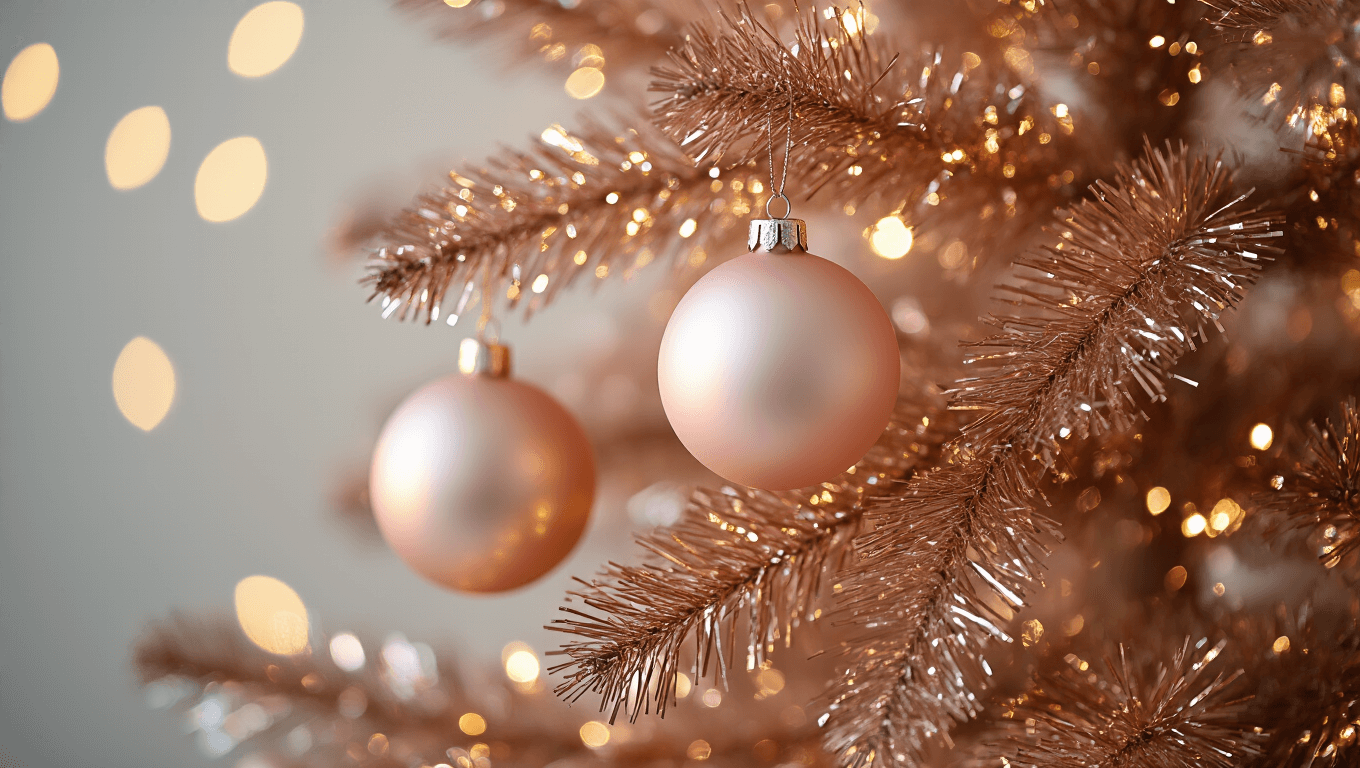
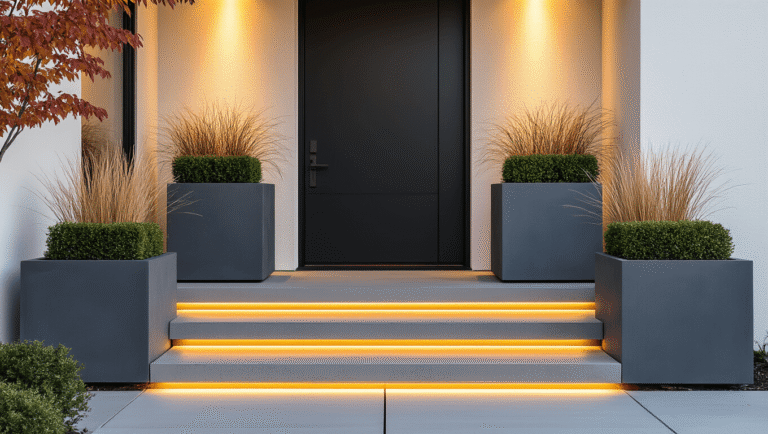

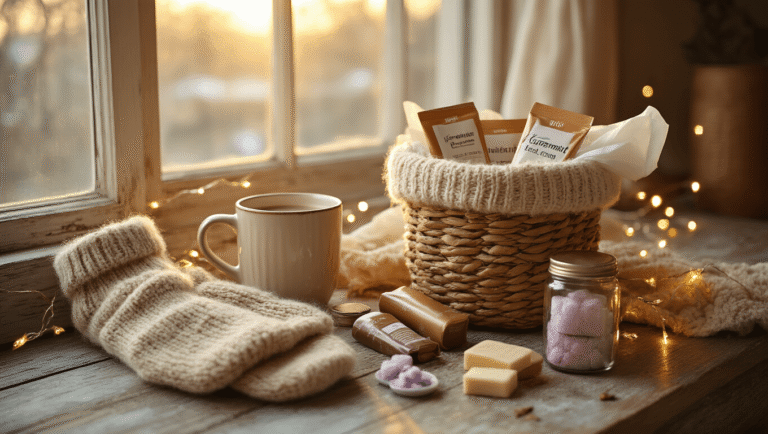
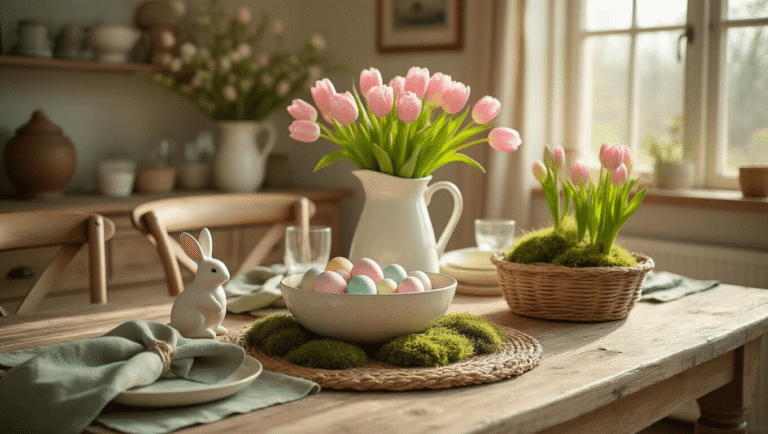
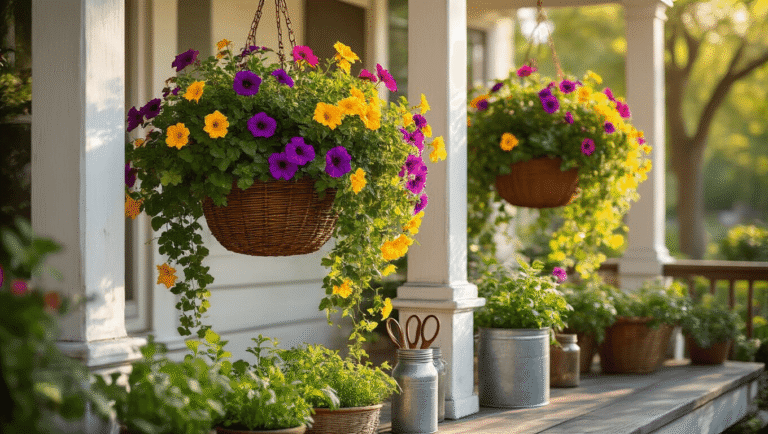
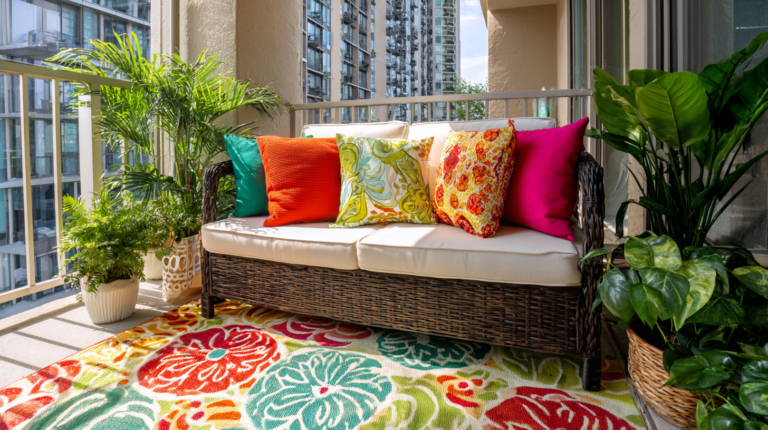
[…] I discovered the magic of less-is-more holiday decorating, and honestly, I’ll never go […]
[…] those bright, candy-cane reds and greens your grandmother insisted on. Christmas tree trends for 2024 are all about jewel tones that look like they belong in a luxury hotel […]